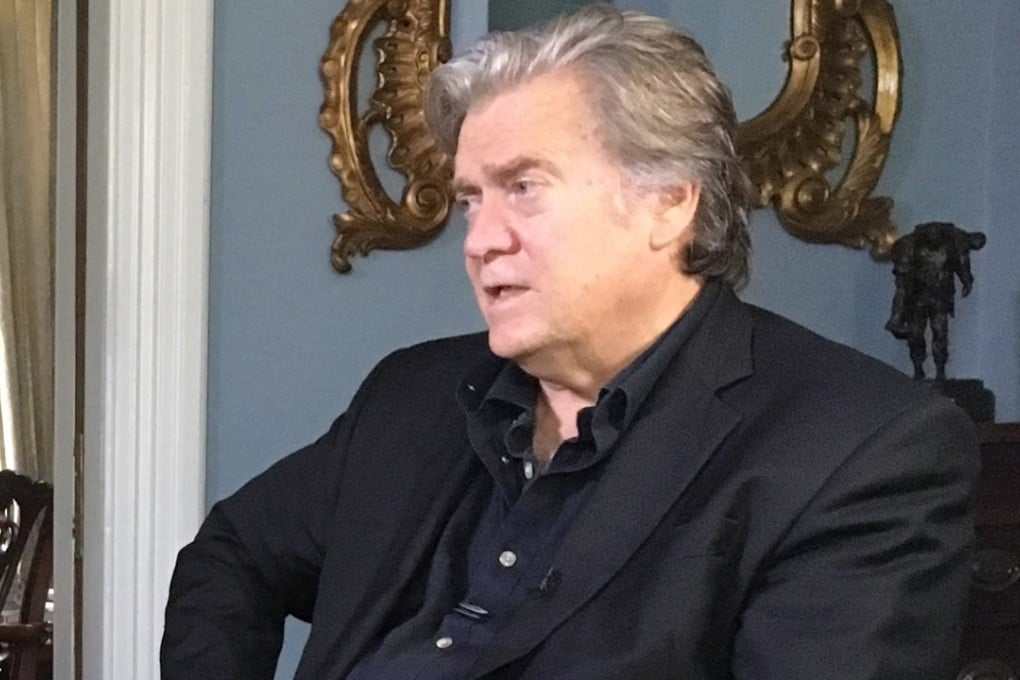Exclusive | ‘Trump won’t back down’: US president plans to make trade war unbearable for China and bigger than ever, Steve Bannon says
In an exclusive interview, the former White House chief strategist says Beijing was caught off guard by the magnitude of the plan he hatched with Trump

US President Donald Trump’s strategy is to make the trade war with China “unprecedentedly large” and “unbearably painful” for Beijing, and he will not back down before victory, former White House chief strategist Steve Bannon said in an exclusive interview.
Bannon said the aim was not just to force China to give up on its “unfair trade practices” – the ultimate goal was to “re-industrialise America” because manufacturing was the core of a nation’s power.
He also took aim at the “Made in China 2025” plan – an attempt by Beijing to catch up with the West in 10 key technology sectors, saying China was using generous government support to reduce its reliance on the West for future technology.
Bannon, who claimed to have helped Trump draw up the trade war plan, said that in the past, tariffs had been limited to imports of between roughly US$10 billion and US$30 billion but the sheer magnitude of the more than US$500 billion in question this time had “caught Beijing off guard”.
“It’s not just any tariff. It’s tariffs on a scale and depth that is previously inconceivable in US history,” Bannon said.
He said Beijing had relied on “round after round of talks” to take the momentum out of the US punitive measures, but the delaying tactics would not work.
“They always want to have a strategic dialogue to tap things along. They never envisioned that somebody would actually do this.”